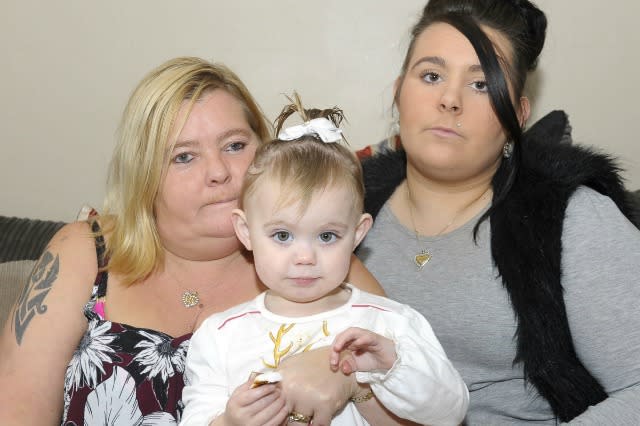Grandmother fined after one-year-old feeds squirrel

Lacey Spearing, a one-year-old from Minton in Kent, was eating a piece of Christmas cake in Sittingbourne town centre, when she decided she'd had enough. Her grandmother Sandra suggested it might be kinder - and less wasteful - to feed it to the squirrels than throw it in the bin. That kindness cost her family £60.
Sandra, her daughter Emma-Louise, and Lacey, had been waiting for a taxi in a churchyard. They had seen two squirrels nearby, and it never occurred to Sandra that anyone could object to Lacey throwing them a few crumbs. She didn't realise, however, that a local rubbish officer was lurking nearby. When Lacey threw the crumbs of cake, he pounced, and slapped Emma-Louise with the fine with a £60 fine for littering.
Sandra told the Daily Mail: "I can laugh now but I was annoyed at the time. I'm definitely not paying it, I'm not paying £60 for feeding squirrels Christmas cake."
%VIRTUAL-ArticleSidebar-council-stories%
The council said it would investigate the incident, but added "We don't encourage people to feed animals as it can encourage pests such as rats, which can transmit disease and cause damage to homes and businesses."
Council crackdown
Swale Council is one of a growing number of councils with a zero tolerance policy on litter - including feeding birds and squirrels. Last month we reported details of another woman given a £50 fine, for feeding leftovers from her lunch to the birds in Swansea.
In May last year a woman from Sidmouth in Devon was fined £80 for feeding peanuts to pigeons, and a year earlier a woman from Bolton was fined £75 for feeding a scrap of leftover pasty to a pigeon.
The councils argue that they are trying to deter pests. At the time of the Swansea fine, the council said that it was part of a local campaign to get people to put leftover food in the bin rather than throwing it on the ground - and that it was acting at the request of local businesses who had been plagued by seagulls.
Money-making?
Elsewhere, councils have argued that because of budget cuts they their 'street scene' budgets are under pressure. They are therefore keen to clamp down on litter, so they can save cash on cleaning it up. Many of them use private wardens to patrol and slap people with fines. They can fine people up to £75 - of which up to £30 is paid to the council. The councils insist it's not a cash grab, but clearly it's a lucrative business.
The New Local Government Network has urged them to adopt more creative approaches. NLGN director Simon Parker said: "There is a real danger that budget cuts will force cash strapped councils to rely on charges and fines to keep their areas clean and green. But there is a better way forward. Leading local authorities are innovating to persuade people to drop less litter in the first place, and persuading communities and businesses to take more responsibility for the local area."
He pointed out that Rochford Borough council introduced bins promising donations to charity if the streets remained clean. The scheme reduced the amount of rubbish dropped by 42% over three months. Meanwhile, Lambeth council helped to create residents' groups, charged with caring for their streets. He said this has reduced littering and helped foster price in their local area.
However, with litter fines proving so lucrative, you have to wonder how many councils will be convinced there's a better option than fines - even when it means slapping a one-year-old with a fine for feeding local wildlife.





